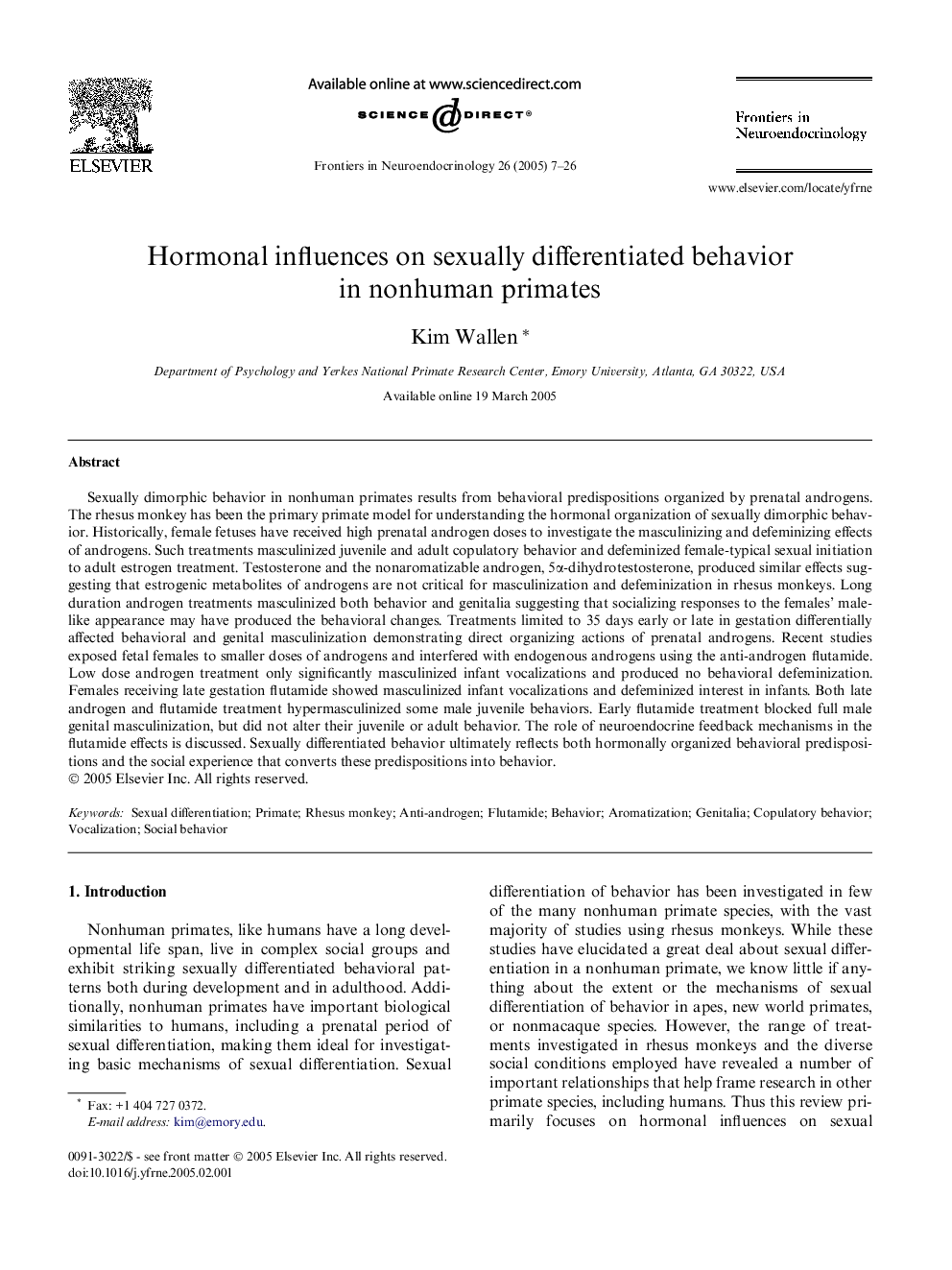| کد مقاله | کد نشریه | سال انتشار | مقاله انگلیسی | نسخه تمام متن |
|---|---|---|---|---|
| 9112976 | 1156002 | 2005 | 20 صفحه PDF | دانلود رایگان |
عنوان انگلیسی مقاله ISI
Hormonal influences on sexually differentiated behavior in nonhuman primates
دانلود مقاله + سفارش ترجمه
دانلود مقاله ISI انگلیسی
رایگان برای ایرانیان
کلمات کلیدی
Vocalization - آواز خواندنSexual differentiation - تمایز جنسیBehavior - رفتارsocial behavior - رفتار اجتماعیCopulatory behavior - رفتار کوپولاتورAnti-androgen - ضد آندروژنflutamide - فلوتامیدAromatization - معطر کردنrhesus monkey - میمون رزوسGenitalia - ناتالیPrimate - نخستیسانان، نخستیها، پریمات ها
موضوعات مرتبط
علوم زیستی و بیوفناوری
بیوشیمی، ژنتیک و زیست شناسی مولکولی
علوم غدد
پیش نمایش صفحه اول مقاله

چکیده انگلیسی
Sexually dimorphic behavior in nonhuman primates results from behavioral predispositions organized by prenatal androgens. The rhesus monkey has been the primary primate model for understanding the hormonal organization of sexually dimorphic behavior. Historically, female fetuses have received high prenatal androgen doses to investigate the masculinizing and defeminizing effects of androgens. Such treatments masculinized juvenile and adult copulatory behavior and defeminized female-typical sexual initiation to adult estrogen treatment. Testosterone and the nonaromatizable androgen, 5α-dihydrotestosterone, produced similar effects suggesting that estrogenic metabolites of androgens are not critical for masculinization and defeminization in rhesus monkeys. Long duration androgen treatments masculinized both behavior and genitalia suggesting that socializing responses to the females' male-like appearance may have produced the behavioral changes. Treatments limited to 35 days early or late in gestation differentially affected behavioral and genital masculinization demonstrating direct organizing actions of prenatal androgens. Recent studies exposed fetal females to smaller doses of androgens and interfered with endogenous androgens using the anti-androgen flutamide. Low dose androgen treatment only significantly masculinized infant vocalizations and produced no behavioral defeminization. Females receiving late gestation flutamide showed masculinized infant vocalizations and defeminized interest in infants. Both late androgen and flutamide treatment hypermasculinized some male juvenile behaviors. Early flutamide treatment blocked full male genital masculinization, but did not alter their juvenile or adult behavior. The role of neuroendocrine feedback mechanisms in the flutamide effects is discussed. Sexually differentiated behavior ultimately reflects both hormonally organized behavioral predispositions and the social experience that converts these predispositions into behavior.
ناشر
Database: Elsevier - ScienceDirect (ساینس دایرکت)
Journal: Frontiers in Neuroendocrinology - Volume 26, Issue 1, April 2005, Pages 7-26
Journal: Frontiers in Neuroendocrinology - Volume 26, Issue 1, April 2005, Pages 7-26
نویسندگان
Kim Wallen,